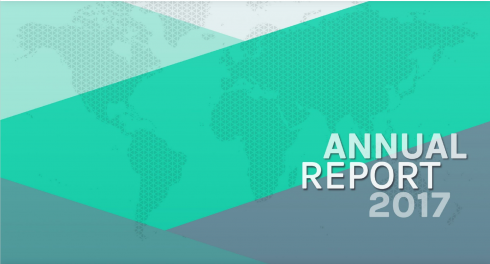
This blog was modified from its original version posted at the Tax Justice Network Africa website.
“What is the impact of your work? Donors and project implementers on the ground have perennially grappled with this Big Question. This complex and much-contested area usually brings about challenges right from the design of the Monitoring, Evaluation, and Learning (MEL) system.
Civil society organizations are grappling with the challenge of implementing MEL functions. It is both a matter of choice and capacity building. Some argue that they are still small in size and operate on a shoe-string budget. Many institutions fall victims to “cost-cutting”, which is to distribute the MEL functions among the various staff. But “cheap” could be “very expensive” in the long run.
What does a functional MEL system entail? A good MEL system is premised on three key points: a) the culture and context of the organization; b) the theory of change and c) learning moments (where practical learning and adaptation occurs). And also important to ask – for whom is the MEL system? Answering this question is the magic bullet to customizing a MEL system that works for your organization.
The culture of the organization provides an environment for the performance of MEL functions. This would facilitate the customization of the system that suits the nature and demand of the organization. Leadership support from the senior management team promotes ownership and facilitates mainstreaming of MEL functions among team members.
A Theory of Change (ToC) defines all the building blocks required to bring about a long-term goal[1]. Clarity on the long-term goals, identification of measurable or observable indicators of success and formulation of realistic assumptions are preconditions for a good theory of change. The MEL system is therefore derived from the Theory of Change, which is the first step to the operationalization of the strategic plan. It is one of the most relevant planning tools for a complex social change programme. Policy influence and advocacy, for example, operates in a dynamic and unpredictable environment. To keep abreast of developments in this sector, frequent reviews of assumptions and intervention strategies need to be factored in, to facilitate the realization of the long-term goal.
Learning moments are the retention of information for future references including tacit knowledge. This depends on adaptive strategies that facilitate practical learning. The culture of curiosity is the first step to the creation of a learning culture. This, however, depends on the level of institutional buy-in, and effective communication. MEL concepts should be communicated in a manner easily understood by the non-MEL practitioners. To succeed in a dynamic environment, MEL practitioners should ensure that MEL is fun! Integration of Information and Communication Technology (ICT) in the data collection, reporting and storage might attract the technological savvy to MEL work (without marginalizing the analog). More innovatively, the creation of learning allies/partners within other teams. This might help break deep-rooted organizational culture that impedes learning.
In no particular order, the following are characteristics of a good MEL system (not totally exhaustive):
- Aligned MEL functions to organizational structures- Creation of a unit to oversee the functions within an organization whose role would be to oversee all MEL-related activities. In some cases, this can be outsourced and managed by external consultants.
- Adequate resource for MEL- This includes both financial and human resources. Hiring employees who have adequate technical knowledge and experience of MEL and motivating them to perform their roles
- Strategic partnership for MEL system- Internally or externally (membership to professional bodies), there is need to create networks to complement the organization’s efforts. These partnerships and networks offer peer-to-peer learning and review for technical documents.
- The Theory of Change/log frame based on the strategic plan- This paints the bigger picture of the long-term goal, starting with the goal in mind.
- MEL Plan- For routine monitoring and evaluation, a MEL Plan that clearly states the intermediate results, sets of indicators and their baselines, targets, data source, the frequency of reporting and responsibility is a necessary development.
- Learning plan and objectives- These could be intentional or unintentional and can be internal or external. Development of adaptive programmes that enable knowledge retention.
- Knowledge management and documentation- Creation of a database for the storage of all MEL-related data. Data audit ensures verification, reliability, and validity of data. Success in the above means success in creating, sharing, using and managing the information of an organization.
- Evaluation and research- Evaluation is a systematic process to determine merit, worth, value or significance[2]. This can be at the beginning, mid-term and end-term. Interestingly though is the role of research as a key component of the evaluation. Good MEL systems ought to plan for evaluation in advance.
Ironically, some donors are interested in investing heavily in a project (project funding) but not a single percentage is allocated for tracking the “what next after the implementation (roundtable meeting)?” Restricting funding to project activities only is investing in trouble! What is the value of investing millions of dollars in a roundtable policy meeting and not allocate a single cent to MEL work? The policy or social change occurs way after the roundtable meeting and sometimes downstream. Investing in MEL is the right step in answering the big question.
Investment in MEL can save development workers from ‘wasteful expenditures’. Before asking the big question, allocate some resources in strengthening MEL system, without which the much-sought-for impact shall remain a mirage.
[1] https://putnam-consulting.com/philanthropy-411-blog/philanthropy/theoryofchange/
[2] http://www.eval.org/p/bl/et/blogid=2&blogaid=4
Reagan Ronald Ojok is the MEAL Officer at Tax Justice Network Africa
[email protected] or [email protected]


